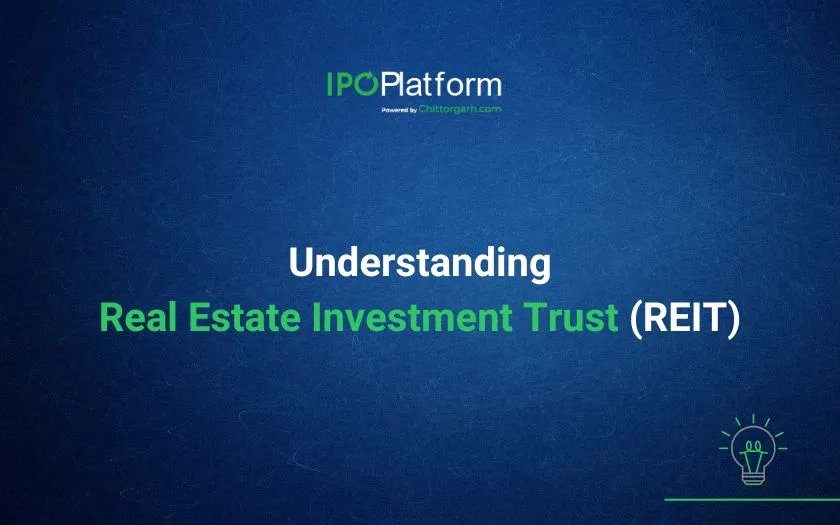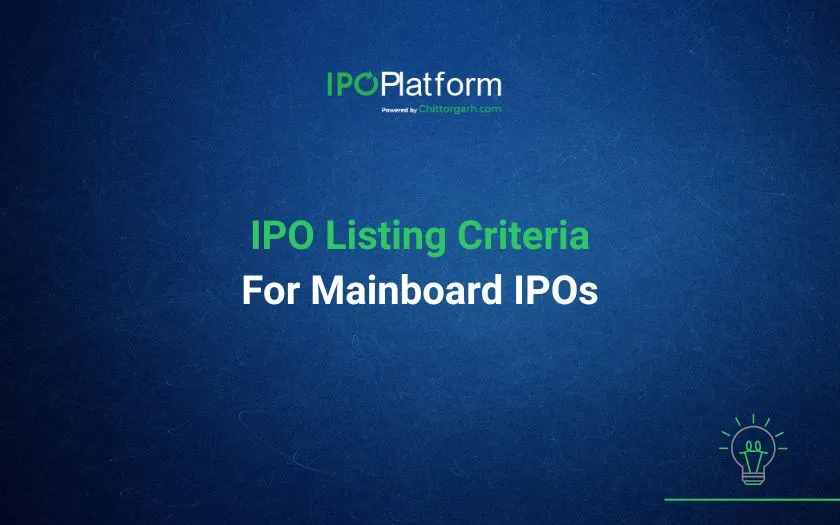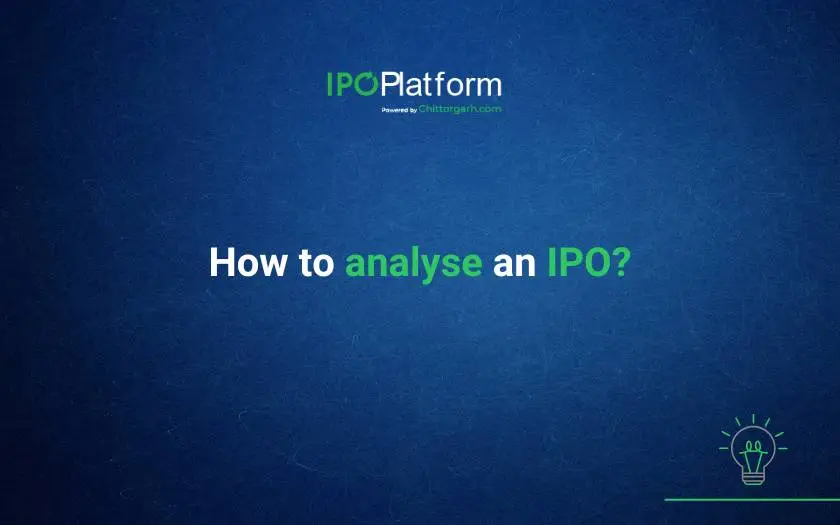Understanding REAL ESTATE INVESTMENT TRUSTS

A Real Estate Investment Trust (REIT) refers to a special purpose vehicle formed to pool investors' money and invest in real estate assets, which are income-generating assets in form of rent or lease. On similar lines, an Infrastructure Investment Trust (InvIT) is also focused on channelling investment funds pooled from investors into infrastructure assets such as roads, highways, power generation facilities, and other large-scale public utility projects.
What is a REIT?
A Real Estate Investment Trust (REIT) is an investment vehicle that owns, operates, or finances income-generating properties from real estate. REIT is similar to mutual funds, but instead of stocks or bonds, REIT pools investors' money to invest in commercial real estate like office buildings, malls, hotels, warehouses, and more. In simpler terms, REIT allows investors to invest in real estate without any kind of physical ownership of assets. Through REIT investments, retail investors can invest in large-scale properties and earn regular income through dividends.
The SEBI regulates REITs in India. SEBI issued the REIT Regulations in 2014, ensuring a transparent and investor-friendly framework. There have been 5 REIT IPO in India and the list of reit can be seen below.
What are the examples of best REIT in India?
Embassy Office Parks, Mindspace Business Parks REIT, Brookfield India Real Estate Trust are some of the examples of REITs in India.
What is InvIT (Infrastucture Investment Trust)?
Infrastructure Investment Trust is also an investment vehicle that allows investors (also known as unitholders) to invest in infrastructure assets like roads, highways, telecommunication towers etc. The income earned by way of tolls and fees is distributed to the investors/unitholders as dividends. There have been 5 InvIT IPO in India and the list of infrastructure Investment Trusts can be seen below.
REITs and InvITs are both investment vehicles operating like mutual funds; they majorly differ on the asset class these trusts invest in.
What are the examples of best InvIT in India?
Some examples of Infrastructure Investment Trust include IRB InvIT Fund, National Highway Infra Trust, Highways Infrastructure Trust and IndiGrid Infrastructure Trust.
Can REIT be listed in India?
REITs can be listed and traded in India on NSE (National Stock Exchange) and BSE (Bombay Stock Exchange) by adhering to SEBI regulations for listing as REIT. Similarly, InvIT can also be listed and traded in India.
Which are the listed REIT in India?
Below is the list of REITs and list of InvIT listed in India. One may look into the best REITs to invest in from the list.
|
REIT/Invite |
Listing date |
Issue Size (Rest in crores) |
Offer Price (Rest per share) |
Listing Price |
Listing Gain % |
|---|---|---|---|---|---|
|
Nexus Select Trust- REIT |
19-May-23 |
3200 |
100 |
104.26 |
4.3 |
|
Property Share Investment Trust SM REIT |
10-Dec-24 |
352.91 |
1050000 |
1048945.70 |
-0.1 |
|
Brookfield India Real Estate Trust (REIT) |
16-Feb-21 |
3800 |
275 |
269.96 |
-1.8 |
|
Mindspace Business Parks (REIT) |
7-Aug-20 |
4500 |
275 |
303.87 |
10.5 |
|
Embassy Office Parks (REIT) |
1-Apr-19 |
4750 |
300 |
314.10 |
4.7 |
|
IndiGrid InvIT Fund |
6-Jun-17 |
2250 |
100 |
98.45 |
-1.6 |
|
IRB InvIT Fund |
18-May-17 |
5921.1 |
102 |
101.79 |
-0.2 |
|
Capital Infra Trust InvIT |
17-Jan-25 |
1578 |
100 |
99.00 |
-1.0 |
|
Bharat Highways Infrastructure Investment Trust |
12-Mar-24 |
2500 |
100 |
103.05 |
3.1 |
|
POWERGRID Infrastructure Investment Trust |
14-May-21 |
7734.99 |
100 |
102.98 |
3.0 |
Difference between REIT and InvIT
|
Parameter |
REIT |
InvIT |
|---|---|---|
|
Asset Class |
Pool of funds collected from the investors is invested in the real estate. |
Pool of funds collected from the investors is invested in infrastructure. |
|
Risk |
Market fluctuations like pricing and demand are seen in real estate property. |
Operational and regulatory risks involved. |
|
Return to Investors |
Rents/lease collected on real estate is distributed as dividends to the unitholders. |
Tolls, and tariffs collected on infrastructure assets is distributed in the form of dividends to the investors. |
Structure of REIT
REIT is usually structured as a trust where investors hold units. The Trust holds the units on behalf of unit-holders (investors). The parties involved in a REIT include a Sponsor, a management company and a Trust.
Sponsor- The sponsor sets up the REIT, usually a real estate company. The real estate company transfers real estate assets from a SPV to a REIT in exchange of units.
Manager- Property management, lease and tenant-related matters and other day to day affairs are handled by Manager.
Trustees- The Trustees ensure proper management of the daily affairs of REIT with adherence to Regulations and objectives.
Benefits of Investing in REITs
- Income Distribution- As a regulatory requirement, REITs are required to distribute at least 90% of their net distributable cash flow to unit holders. Investment in REITs diversifies the investor's portfolio, and they can invest in large real estate in a structured and regulated manner.
- Less capital outflow- Property markets require huge investments. Investment through REIT provides an easier option to invest in real estate without physically owning it.
- Liquidity- Listed REIT units can be bought/sold on stock exchanges like stocks. It also attracts institutional and foreign investments into the Indian real estate sector.
- Regulated by SEBI- There is transparency, compliance, and investor protection.
- Professionally managed- Experienced asset managers and real estate professionals manage the properties.
Challenges of Investing in REITs
- Taxability- There is no tax benefit on investments made in REITs as the dividends earned are taxable.
- Growth Prospects- Obligation to distribute 90% of income to investors minimizes the capital appreciation. Maintenance fees for real estate are also high.
- Market Fluctuations- The real estate is susceptible to market fluctuations, which increases the risk of investments made in REITs.
FAQs
1. What is Real Estate Investment Trust (REIT)
REIT is a trust registered with SEBI (Real Estate Investment Trust Regulations 2014) to raise funds from investors by issuing units and invest these funds in real estate assets.
2. Is REIT a good investment?
Investing in REIT is good to diversify investments, and one can invest in large real estates without physical ownership.
3. Which is the best REIT in India?
REITs are listed as per SEBI Regulations (REIT)2014. One can see the REIT performance on ipoplatform.com
4. How can I buy REITs?
REITs are listed and traded on NSE and BSE. You can buy the shares of REIT through NSE in demat account.
5. How many REITs are listed in India?
In total, there are 5 REITs listed including one small and medium (Property Share Trust REIT). Nexus Select Trust REIT, Mindspace Business Parks, Brookfield India Real Estate Trust and Embassy Office Parks are other REIT listings.
6. How much return on REIT?
REITs have to distribute 90% of earnings to the unitholders as per the regulations. There may be low capital appreciation.
7. Can REIT be listed in India?
Yes, REIT can be listed in India on NSE and BSE. There are 5 listed REITs in India.
8. Is REIT taxable in India?
Income received in the form of dividends from REIT is taxable.
9. What is InvIT?
Infrastructure Investment Trust refers to SPV that pools funds from investors and invest it in infrastructure assets.
10. What is the difference between InvIT and REIT?
InvIT invests in infrastructure assets like roads, highways, power plants etc. whereas REIT invest in real estate projects like offices, buildings etc. REITs face market fluctuations while InvIT have regulatory and operational risks attached to them.
11. Are InvIT regulated by SEBI?
Infrastructure Investment Trust are registered with SEBI to function as per SEBI (Infrastructure Investment Trust) Regulations 2014.





0 Comments